What is Responsibly Sourced coffee? What Accreditations Should I Look Out For, And How Do I Spot Greenwashing?
We all know our planet is under severe environmental stress and many say we are in a state of emergency. The Climate Crisis, rising sea levels, deforestation, and unprecedented levels of carbon in our atmosphere are just some of the challenges the planet faces. We’re also seeing growing inequality across the globe, driven by technological advances, modern slavery, and warfare. This situation has led many brands to make promises about how they treat people and the planet, and as a result, there are more and more labels that attempt to signal to consumers what a brand stands for and how a product has been sourced. ‘Planet Friendly’, ‘Sustainable’, ‘Responsibly Sourced’, ‘Fair Trade’, ‘Carbon Neutral’ and ‘B-Corp’ are just some of the most common phrases used to describe a product and it’s sustainable roots. But what do these terms really mean? As owners of a coffee business, we’ve been on a huge journey of learning when it comes to our own understanding of what ‘sustainable’ and ‘ethical’ means in 2023. This blog will touch on just some of the things we have learnt and aims to help demystify some of the key terms, especially when it comes to purchasing coffee.
What is greenwashing and how can you spot it?
When it comes to making a purchase, the growing majority of people now want to know where the things we buy actually come from, whether that be food, clothing, furniture, flowers or anything that has been sourced from another party. We also want to know more about the raw ingredients and materials used as part of the end to end production process. We want to be sure that the products we buy are of good quality but are also acutely aware of the social and environmental impact of our purchases. With so many labels and terms flying around, we also hear brands accused of “greenwashing”, which this adds further confusion! So let’s first start with explaining what Greenwashing is.
The term greenwashing applies to a type of marketing that appeals to those who care about the environment and want to buy from companies that they consider to have a positive impact on the planet (or a less detrimental impact than a competitor, or those how are giving back in some way to the environment).
When a company is causing harm to the environment but makes environmental claims that contradict their actions - this is called Greenwashing.
As Greenpeace describes it:
“Think: bold claims, nature-inspired imagery or green buzzwords that rarely hold up when looked at in more depth. Or vague claims and ‘green’ solutions that misdirect you and take you away from the real issues”
An example highlighted by Earth.org called out Nestle:
“In 2018, Nestlé released a statement saying that it had “ambitions” for its packaging to be 100% recyclable or reusable by 2025. However, environmental groups and other critics pointed out that the company hadn’t released clear targets, a timeline to accompany its ambitions or additional efforts to help facilitate recycling by consumers. Greenpeace reacted to this by releasing its own statement, in which it said, “Nestlé’s statement on plastic packaging includes more of the same greenwashing baby steps to tackle a crisis it helped to create. It will not actually move the needle toward the reduction of single-use plastics in a meaningful way, and sets an incredibly low standard as the largest food and beverage company in the world.” In Break Free From Plastic’s 2020 annual report, Nestlé, along with Coca-Cola and PepsiCo, were named the world’s top plastic polluters for the third year in a row.”
The International Consumer Protection Enforcement Network recently announced that after considerable research they believe around 40% of companies use Greenwashing techniques. That’s a lot more than we first thought! Which is disappointing. So it’s worth knowing how to spot Greenwashing, so you can avoid falling into the Greenwashing trap!
What does greenwashing look like?
Here are a few examples of what Greenwashing could look like:
-
Packaging: Packaging can often be designed to give the impression it is sustainable or more ethical than it actually is.
-
Marketing statements: I.e. A very large and popular chocolate brand’s mission statement is “100% slave free chocolate” however in 2021 The Times reported that they found 1701 children working in their factories. Average child labour rates stand at 46% in the cacao industry, and this brand has a child labour rate of 3.9% - significantly lower. But not 100% slave free.
-
If a company has an eco friendly version of a product or an eco friendly range of products, that’s great - but it could be that the rest of their business is not and could still be damaging the planet and people.
-
Often products are described as “organic” or “natural” which gives the impression they are also sustainable. However, upon closer inspection, it will often be the case only one ingredient is.
-
Brands may offer to offset carbon, without committing to any big changes immediately.
-
No evidence to back up claims.
-
Using very broad or poor definitions on purpose to cause misunderstanding. An example would be a recycling logo on a packet without any information on which part of the packaging is actually recyclable. This applies heavily to coffee packaging. Most packets have aluminium valves to keep the coffee fresh but this can not be recycled.
What can I do to avoid greenwashing?
As a consumer it can be really tough trying to navigate through all the noise and claims, but looking out for accreditations is one way of ensuring your purchases are with the right companies. At RiSE coffee box, we try to do the hard work for you, by searching high and low for coffee roasters we consider to be ethical and sustainable. Our main tip is to buy from brands you trust to be doing the right thing. This trust can be built by doing research about the brand and their sourcing, as well as asking them questions about their products.
Here are some green certifications that the UK recognises:
-
Leaping Bunny - which means that the product has not been tested on animals.
-
B Corp - means that a business is legally required to do beneficial things for the environment and the people who help create their products. RiSE coffee box is planning our B-Corp status application - however there are costs involved for small businesses, that we can’t all afford. All that said, the movement is certainly doing right by the planet, and making sure companies are being held accountable for their actions and impact on the planet.
-
Carbon Trust - meets a certain standard of carbon emission reduction, meaning the product is trying to minimise its carbon impact.
-
Fairtrade - the product has been made by people who received a fair wage for their work.
-
Forest Stewardship Council (FSC) - the product is made using sustainable or responsibly managed wood sources.
We would say to take these accreditations with a pinch of salt however. Alice and Ben found that Fair Trade coffee prices in Uganda were 3 times LESS than what specialty coffee producers such as Agri Evolve pay farmers, and there was a recent backlash about Nestle receiving B-corp status. Our advice would be to do as much research as you can manage, and not be afraid to ask brands questions about their processes.
RESPONSIBLY SOURCING COFFEE
Since our trip to Uganda in March 2023, Alice and Ben (Founders of RiSE coffee box) have become acutely aware of the economic challenges faced by farmers in Africa as well as from an agricultural point of view. You can read more about what we learnt about sustainable farming specifically, here.
When it comes to responsibly sourcing coffee, we at RiSE coffee box give particular focus to transparency and traceability. When we start working with a roaster we ask them to fill in a survey, with questions below such as:
How / where do you source your coffee?
What price per KG do the farmers get for the coffee you buy?
How would you rate your coffee in terms of sustainability?
What sustainable practices do you have in place?
Is your packaging recyclable or plastic free?
Is the packaging clearly labelled as recyclable?
How do you avoid or reuse your waste products?
Do you offset your carbon?
Alice and Ben then review all aspect of their answers, we scan their website for greenwashing and check their accreditations, as well as review the packaging sample that the roaster has sent to us to ensure it is recyclable and plastic free. When a third party accreditation is in place, such as Rainforest Alliance, that can help to give us some assurances as to the processes and practices they have in place. However, this a lone would not be enough to guarantee the coffee is responsibly sourced.
WHAT IS DIRECT TRADE?
Direct Trade is another, important concept when it comes to ethically sourcing coffee beans, although it does come with its own challenges. At RiSE coffee box we love the concept of direct trade and their are some fantastic roasters like Conscious with Coffee who are doing this really well. They make their pricing fully transparent on their website so you can see the price paid to the farmer. When a coffee roaster buys via direct trade, this indicates that they are sourcing the coffee directly from the farmers themselves and essentially removing any middlemen in the process. This allows farmers, especially small holder farmers, to make more profit as they are receiving a bigger slice of the pie. Going direct also helps to educate the farmer on sustainable farming methods and produce better quality beans (ripe red cherries).
The main challenge with Direct Trade is that there is (currently) no third party or regulatory body that governs how farmers are being treated. When it comes to Direct Trade, consumers (and businesses like ours) have to put your trust in the coffee roaster that they are doing the right thing.

IS FAIR TRADE ACTUALLY FAIR trade?
Fair Trade is a really interesting concept. On one hand it’s a force for good, helping to educate and inspire consumers to consider their purchase and the producer whose livelihood depends on selling their products. On the other hand Fair Trade prices do not necessarily equate to fair living wages in specific regions, and Fair Trade prices, when it comes to coffee, may not be the highest price a farmer can receive for their goods.
Fair Trade states: “Fairtrade achieves this by rallying a global community of millions – farmers and workers, supply chain partners, brands, retailers, shoppers, schools, government – to pay fair prices and uphold fair production standards and practice”
But who sets this “Fair prices”?
The Fairtrade Standards Committee, does. The committee comprises of:
-
Three producer representatives
-
One trade union (worker) representative
-
Three national Fairtrade organisation representatives
-
One trader representative.
The process includes over 540 people from 40 different countries.
When Alice and Ben travelled to Uganda in March 2023 there were clearly disparities between the price paid at Fair Trade level vs coffee being bought for the specialty coffee industry via Direct Trade or when it was responsibly sourced. The price per KG in Uganda (as of March 2023) is 500 Shillings (11p) for Fair Trade coffee and 1700 Shillings per KG for (37p). In this instance, it’s hard to understand how the committee can justify setting prices that are just one third of those paid via Direct Trade? These low prices not only affect the living standards of farmers but creates an industry that encourages poor sustainable farming methods - the farmers do not care to sustainably grow excellent coffee if the price they get paid only reflects poor quality coffee cherries.
time to wrap up!
In this blog we’ve talked about the many different terms and concepts used to describe what is essentially - sustainable sourcing of products. We’ve focused mainly on coffee and the farmer who grows the coffee cherries and the price they get for their products, but there are of course so many elements to sustainability that need to be considered (just take a look at the Sustainable Development Goals for a more expansive definition). Although we may not have demystified all of the concepts - the key takeaways to remember are:
-
Don’t be fooled by Greenwashing - do your research, ask the questions, see what you can find out for yourself!
-
Not all accreditations solve all of the challenges - just because a product has an accreditation, it may be lacking in some of the rigour you might expect
-
Direct Trade and buying from brands that do the hard work for you can help you to make sustainable purchases
-
Keep asking questions - at RiSE we are super passionate about transparency and storytelling, the more we ask, the more we learn! We hope to keep passing on our learnings to all of you.
WANT TO LEARN MORE?
▻ Sustainable coffee farming in Uganda
▻ Responsibly sourced coffee explained
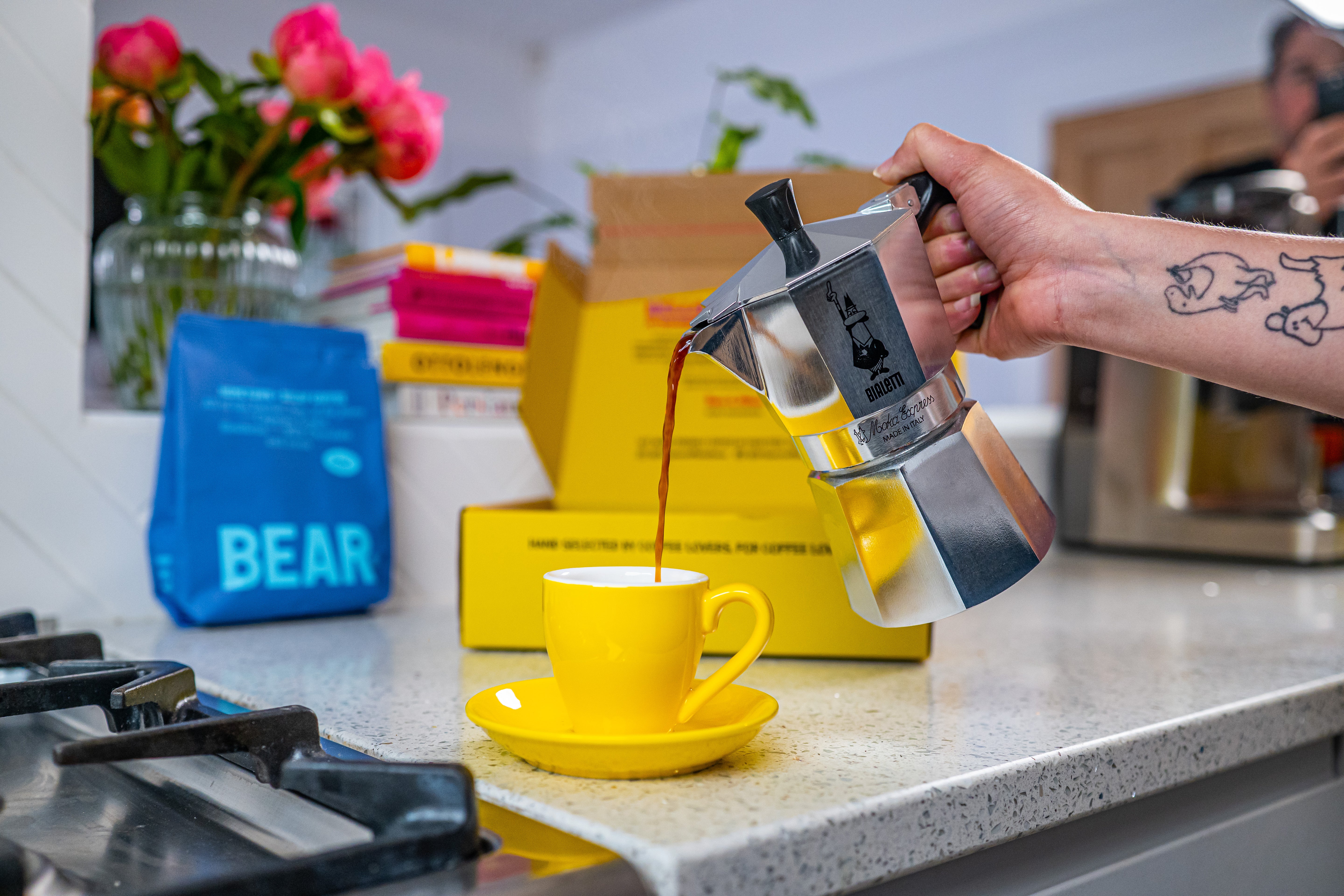
MONTHLY COFFEE DELIVERED TO YOUR DOOR
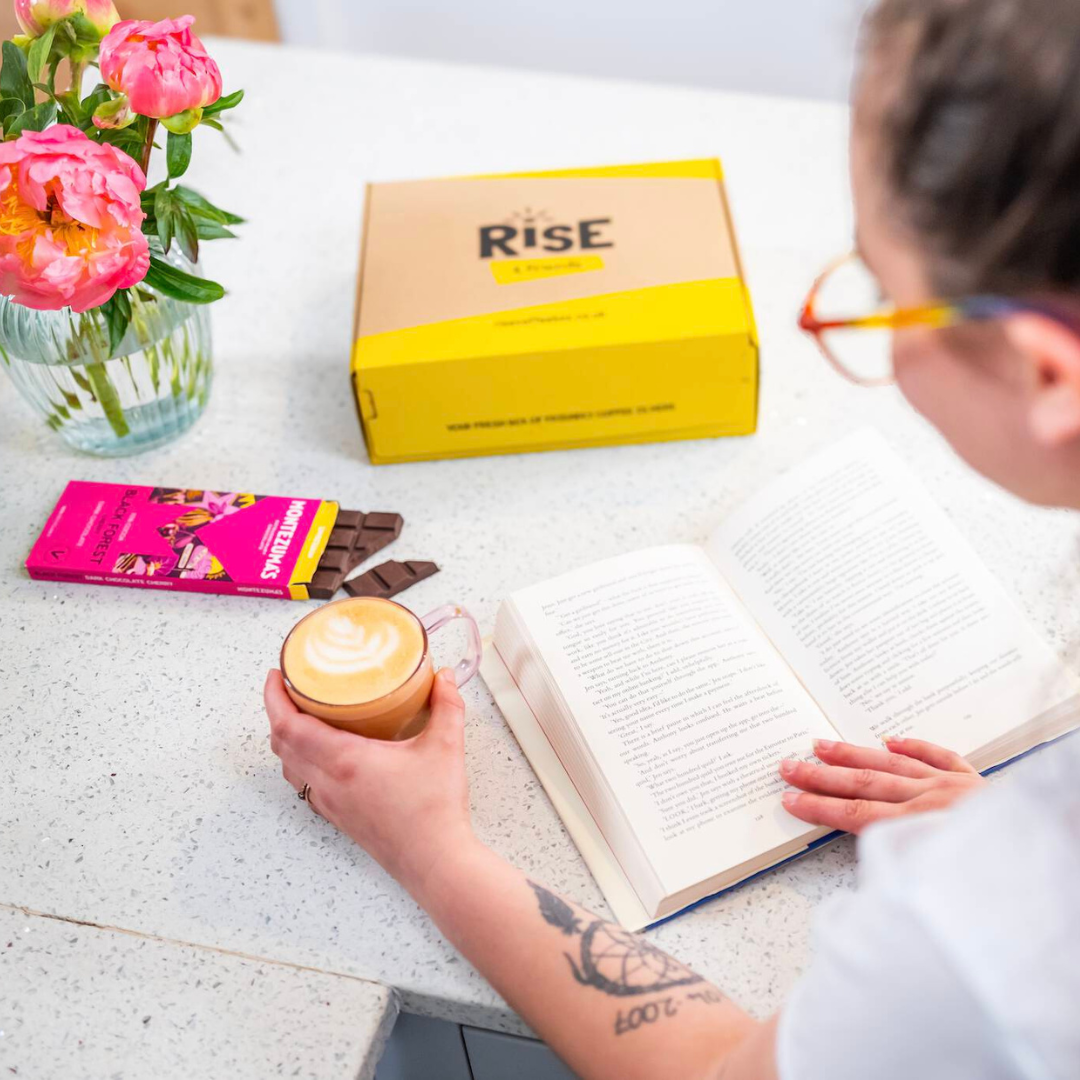






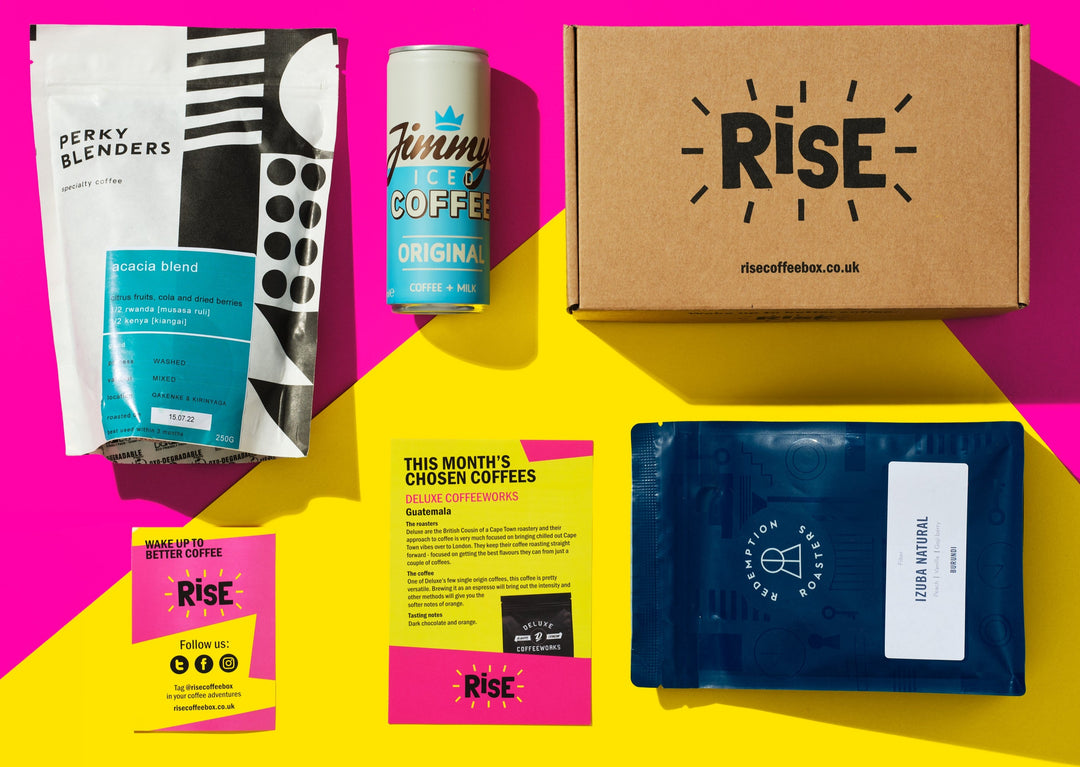
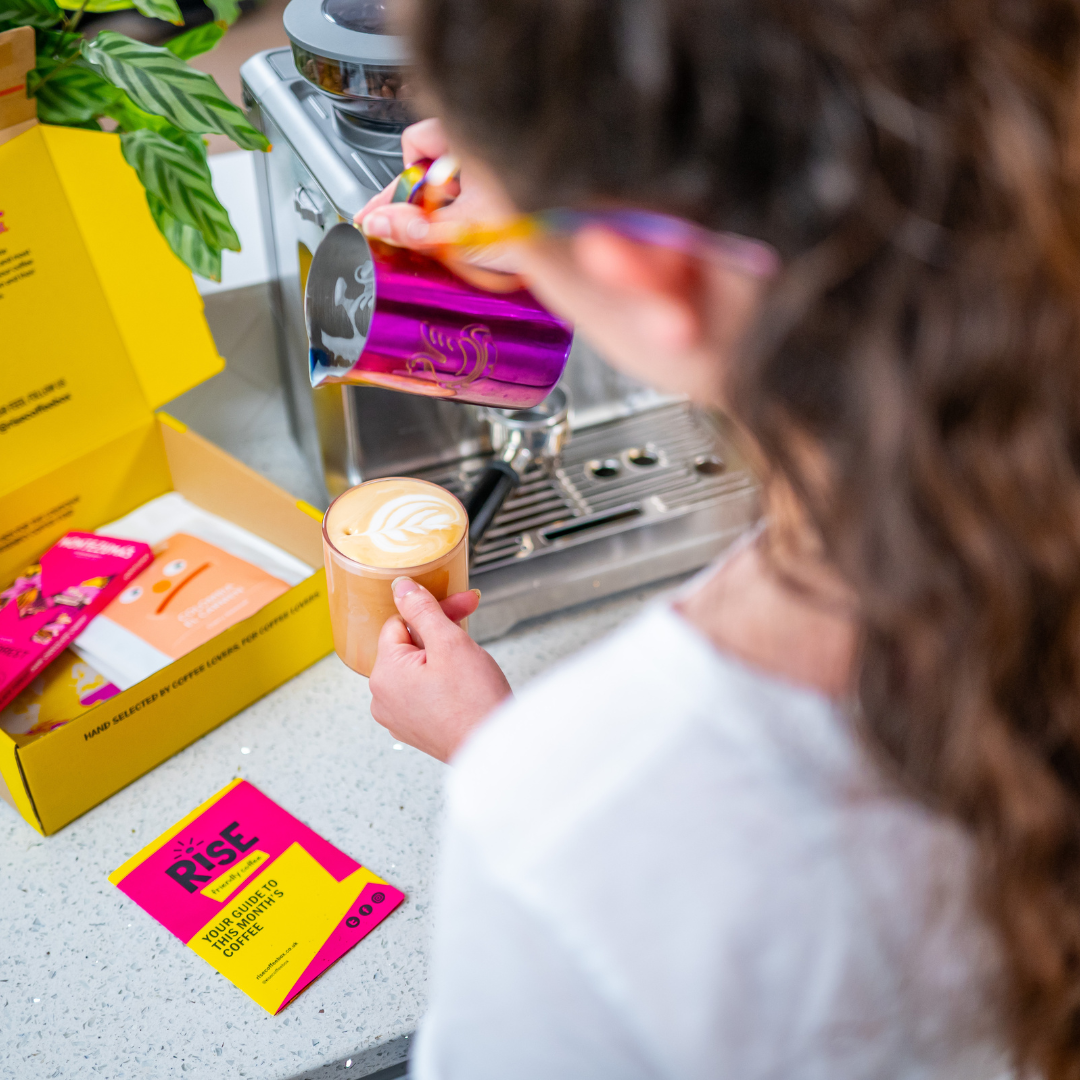
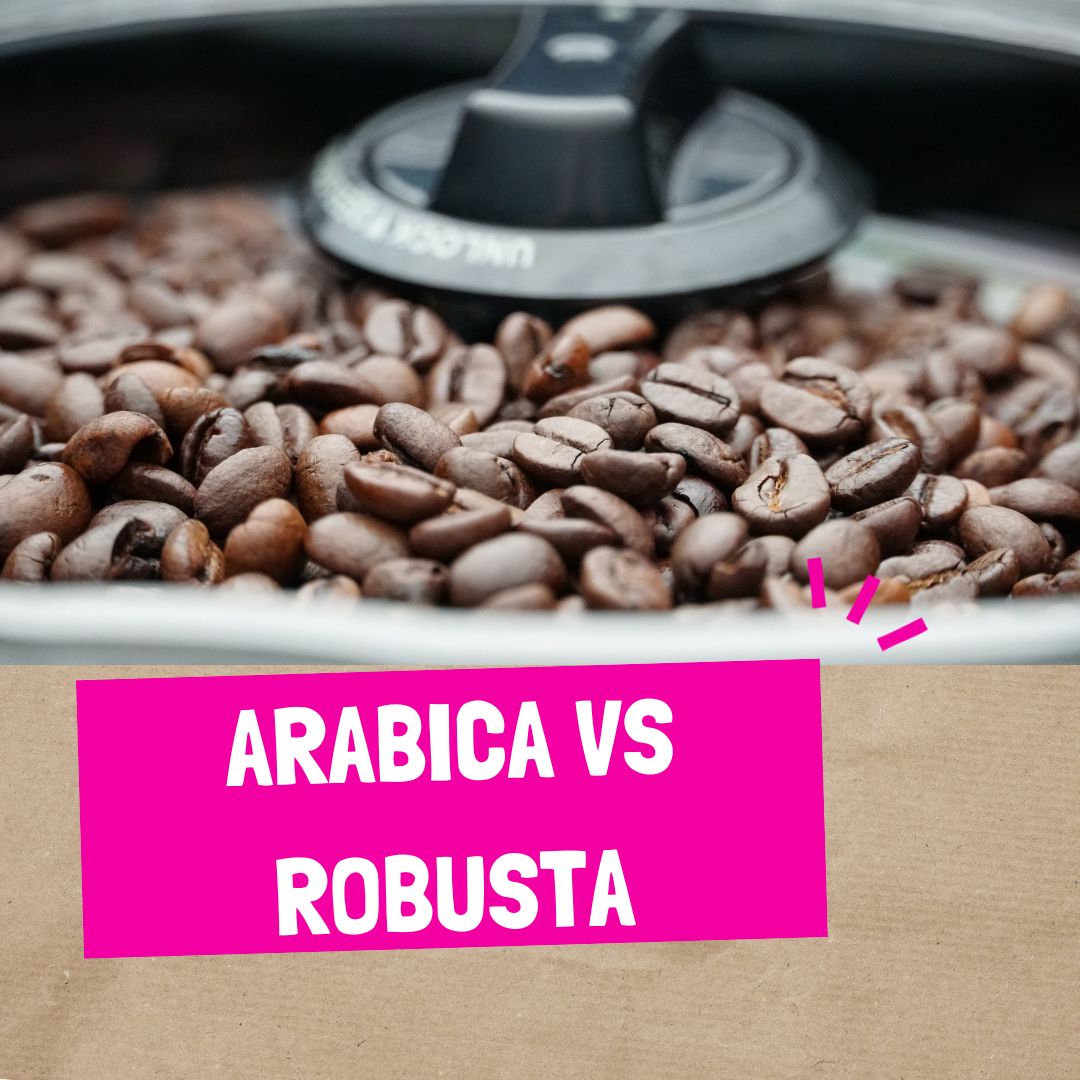







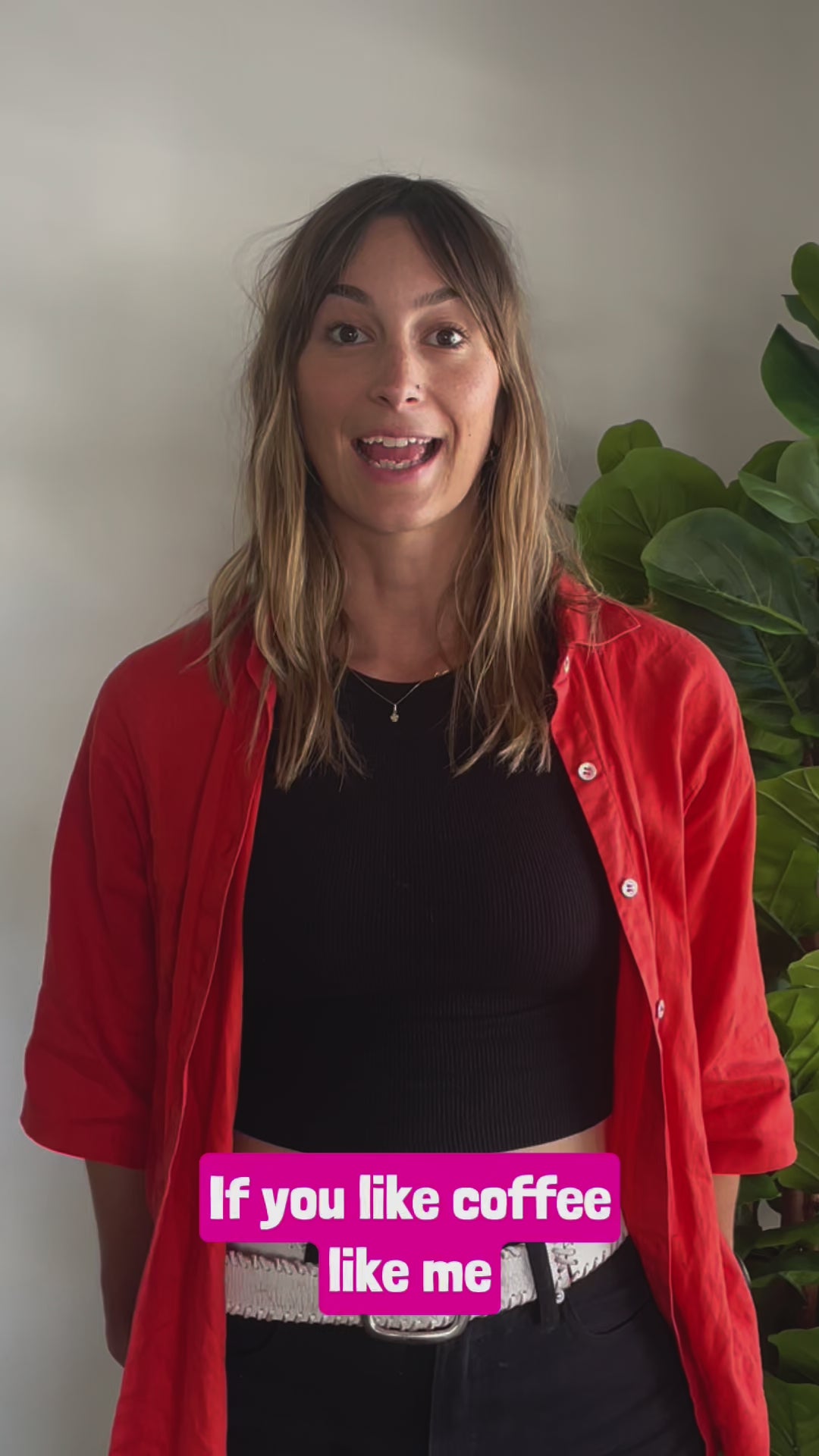








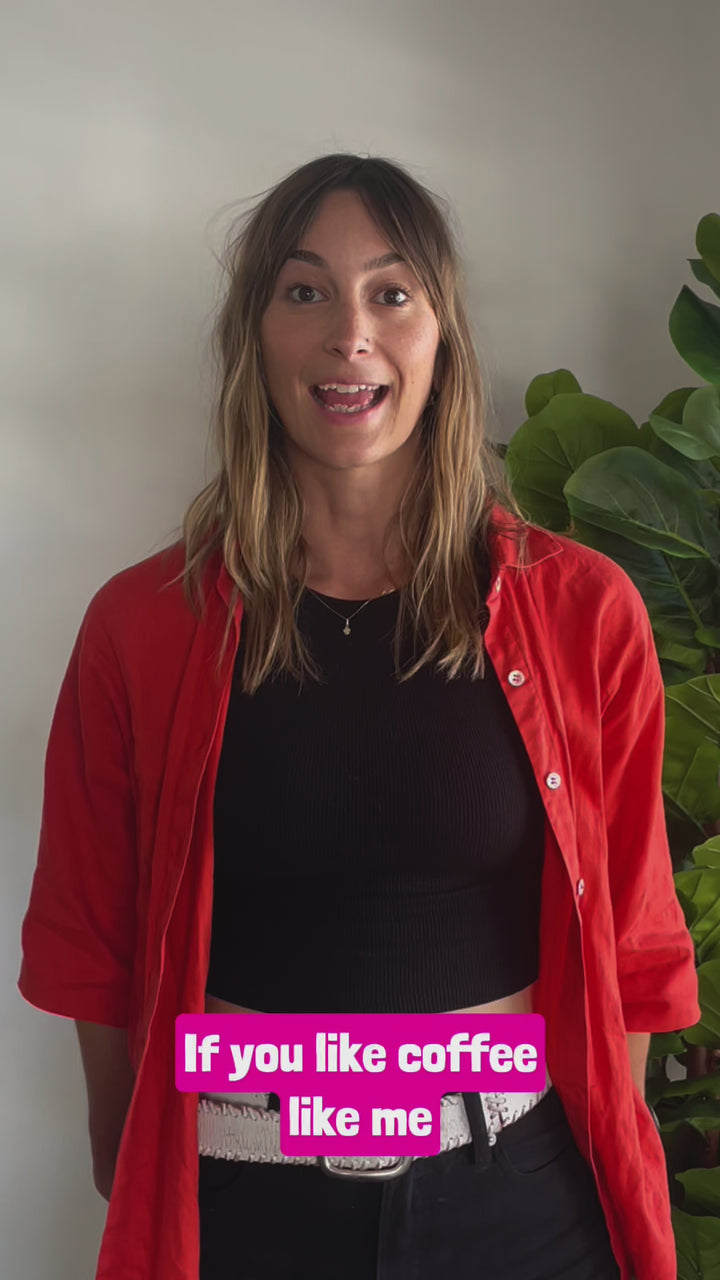

Leave a comment